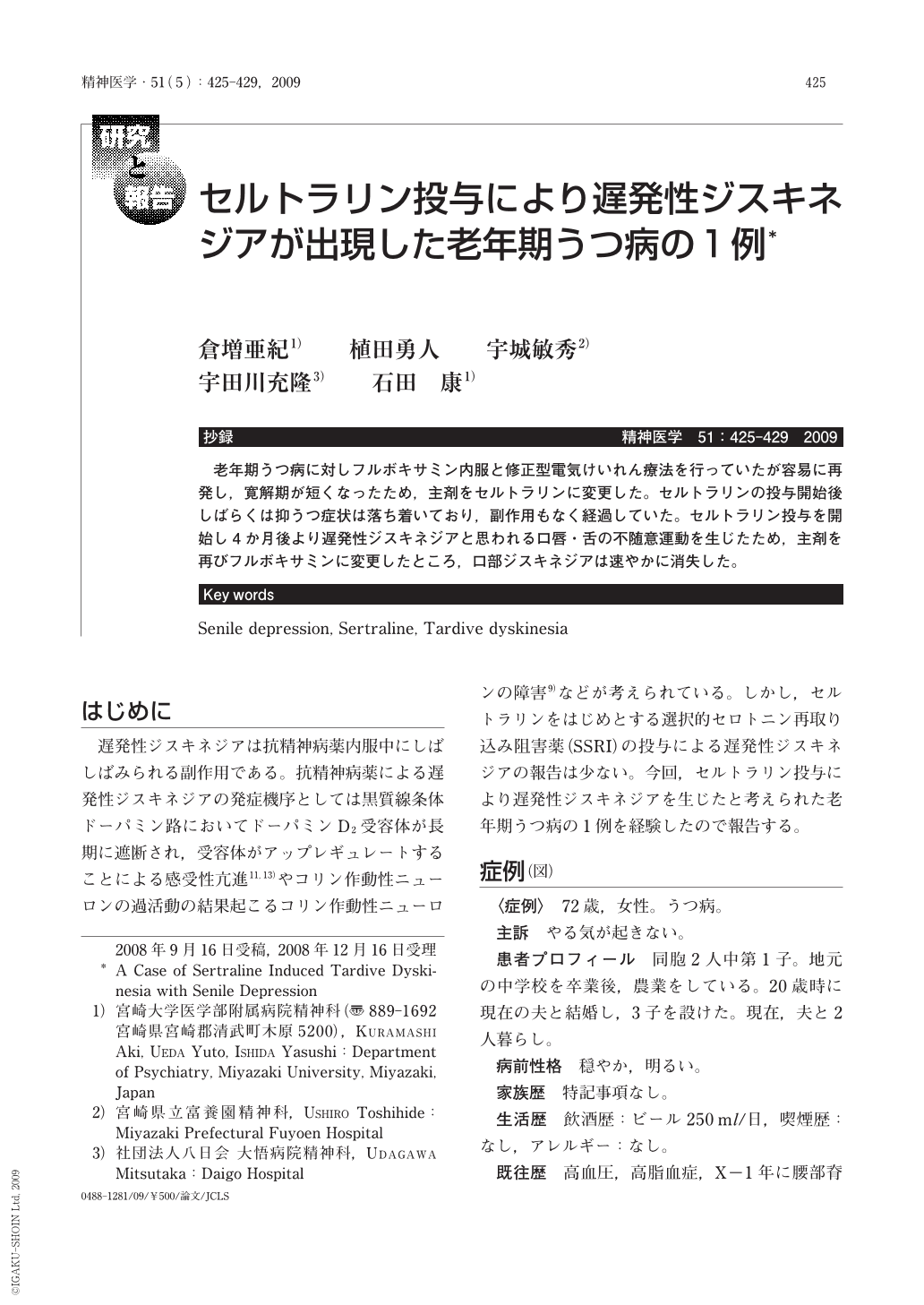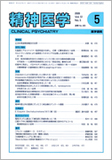Japanese
English
- 有料閲覧
- Abstract 文献概要
- 1ページ目 Look Inside
- 参考文献 Reference
抄録
老年期うつ病に対しフルボキサミン内服と修正型電気けいれん療法を行っていたが容易に再発し,寛解期が短くなったため,主剤をセルトラリンに変更した。セルトラリンの投与開始後しばらくは抑うつ症状は落ち着いており,副作用もなく経過していた。セルトラリン投与を開始し4か月後より遅発性ジスキネジアと思われる口唇・舌の不随意運動を生じたため,主剤を再びフルボキサミンに変更したところ,口部ジスキネジアは速やかに消失した。
Tardive dyskinesia (TD) is a side effect of treatment with neuroleptics. A number of hypotheses have been proposed to explain the mechanism of neuroleptic-drug-induced TD, induding hypersensitivity of striatal dopamine D2 receptors caused by prolonged blockage and upregulation of the receptor, and neuronal disturbance caused by hyperactivity of cholinergic neurons. However there are few reports a TD induced by serotonin selective reuptake inhibitors (SSRI).
A 72-year-old woman with senile depression was treated with fluvoxamine and modified electroconvulsive therapy. However, the depressive state recurred. Since the depressive condition was not improved by fluvoxamine, the patient was administered sertraline, which was followed by discontinuation of fluvoxamine administration. Four months later, the patient experienced involuntary movements of the lips and tongue, indicating TD that was probably induced by sertraline. Sertraline administration was changed to fluvoxamine, and the oral dyskinesia immediately disappeared. On the basis of the clinical course of this patient, we discussed the mechanism of sertraline-induced TD in this report.

Copyright © 2009, Igaku-Shoin Ltd. All rights reserved.


